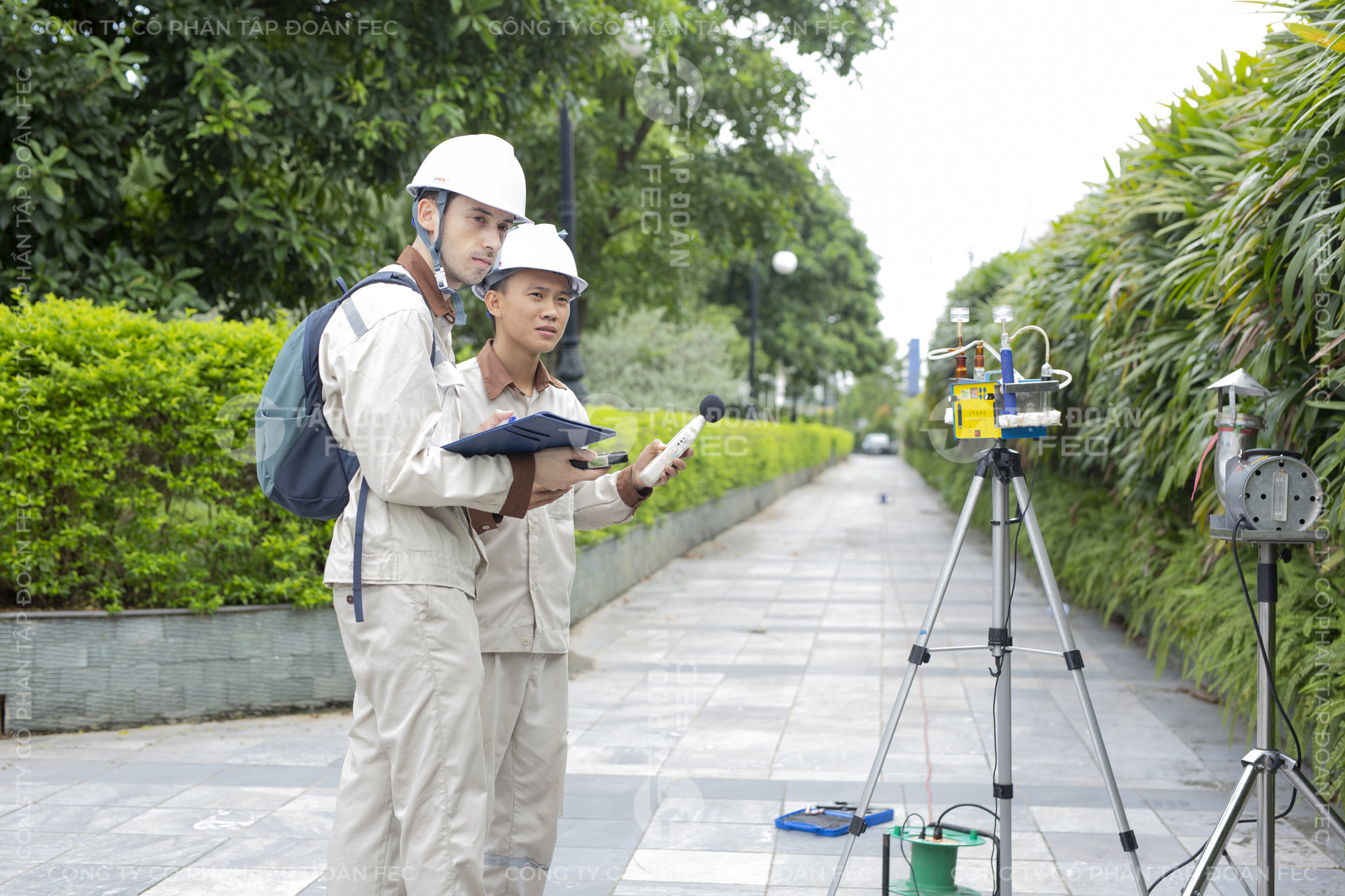ENVIRONMENTAL MONITORING – ANALYSIS
1. Why is it necessary
to monitor the environment? Environmental monitoring is a process of regularly
measuring one or more indicators concerning the physical, chemical and
biological properties of environmental components, according to a pre-set plan
in time and space. These measurement methods and procedures, provide basic information
with a high reliability and accuracy and can assess environmental quality
developments. Periodically monitoring and supervising the environmental quality
aims to analyse to what extent the environment is being affected and how
production and business activities impact the environment. This is also a way
for businesses to fulfil their responsibility for environmental protection,
while also ensuring their own rights. Depending on the area, scale, and
characteristics of the production industry, environmental monitoring includes
the following factors:
- Monitoring air
quality
- Monitoring water
quality
- Monitoring the
quality of the soil environment
- Monitoring mud and
sediment quality
- Monitoring and
checking to determine whether solid waste is normal or hazardous.

2. Regulations on sampling and analysis methods for
environmental monitoring samples
- Sampling methods and laboratory analysis methods
must be recognized by Vimcerts. In the appendix of the Decision on
certification of registration of testing activities and eligibility to operate
environmental monitoring services, the field and scope in which the laboratory
is certified is clearly stated.
- For parameters prescribed according to Circular
10/2021/TT-BTNMT of the Ministry of Natural Resources and Environment, if the
laboratory has not yet been licensed, there must be a related subcontract. The
results shown on the analysis sheet must clearly show that the results are
monitored or analysed by the subcontractor.
3. Procedures
for performing environmental monitoring
The
process of performing environmental monitoring usually includes the following
steps:
1. - Determine goals: First, it is necessary to
determine the goals and scope of environmental monitoring. This includes
determining the environmental factors that need to be measured and analysed, as
well as the intended use of the monitoring information.
2. - Select indicators: Based on monitoring goals,
environmental indicators that need to be measured must be selected. These
indicators may include water and air quality, biodiversity, soil pollution and
other similar factors.
3. - Set up of the monitoring stations: Determination
of locations and set up of the monitoring stations. The latter should be placed
in locations representative of the area or environment to be measured. The
location and distribution of monitoring stations should be determined based on
factors such as environmental exposure to humans and demographic and industrial
activities.
4. – Collection of the samples: Collection of the
environmental samples according to the prescribed method and schedule. Sample
collection needs to comply with respective regulations and ensure the accuracy
and representativeness of the sample.
5. - Sample analysis: Collected samples are
transferred to the laboratory for analysis. Sample analysis may include
chemical, biological, physical or other methods suitable for measuring and
determining environmental indicators.
6. - Data processing and analysis: Data collected from
environmental monitoring is processed and analysed to evaluate environmental
quality and make comparisons with relevant standards and assessment levels.
7. - Reporting and evaluation: The results of
environmental monitoring are reported and evaluated. Reporting may include a summary
of the results, a trend analysis, a comparison with standards and environmental
impact assessment.
8. - Suggestion of improvement measures: Based on
monitoring results, environmental management and improvement measures can be
proposed and implemented to minimize negative impacts on the environment and
people.
This process may vary depending on the purpose and
scope of environmental monitoring, as well as on legal requirements and
regulations.
4. Purpose of
environmental monitoring
Environmental monitoring has been clearly regulated
according to the law.
- Periodic
monitoring to serve environmental monitoring
- Monitoring
and assessing the background environment to serve the preparation of new
environmental impact assessment reports or increased capacity
- Monitoring
for testing operation of wastewater or exhaust gas treatment systems
- Monitoring
for acceptance of wastewater or exhaust gas treatment works
- Monitoring serves for the inspection and sanctions
for violations in the field of environmental protection
- Other
monitoring goals serve the specific requirements of business owners
5. Choose which unit to perform environmental
monitoring
FEC is one of
the leading units in the field of environmental monitoring in Vietnam with
professional, accurate and dedicated environmental monitoring services. FEC
always updates and develops to find the latest technologies and methods to be
able to provide the most detailed and accurate assessments of environmental
quality. Before performing environmental monitoring, FEC will create a detailed
Monitoring Plan to clearly outline each implementation step.
Environmental
monitoring plan
The
environmental monitoring plan implemented by FEC includes:
- Content about information, location, parameters,
frequency and monitoring time
- Requirements for machinery, equipment, and
implementation methods
- Assign tasks to parties and members participating in
environmental monitoring activities
Environmental monitoring service
- Monitoring the surrounding air environment
- Emission monitoring
- Wastewater monitoring
- Analysis, evaluation, and classification of common
or hazardous solid waste
- Drinking water analysis
- Monitoring of the surface water quality
- Monitoring, analysis and evaluation of the
mechanical soil composition, pesticide residues and heavy metals in soil
- Monitoring the working environment

In order to monitor, measure, analyze and test the
wastewater, ambient air, emissions and monitor the environment, please contact
us immediately for advice, support and a quote. The FEC Group Joint Stock Company always values brand
reputation and the quality of its products and services. We provide our customers with the
best possible and most suitable products. For further details please contact:
Hotline: 0356.541.516 Address: No. 7/71 Luong Van Tam, Dinh Ke Ward, Bac Giang
City, Bac Giang Province
